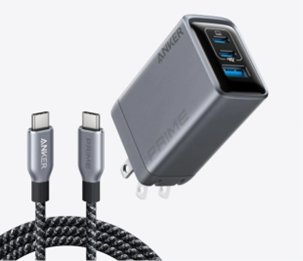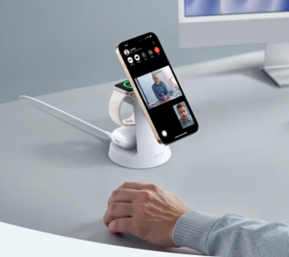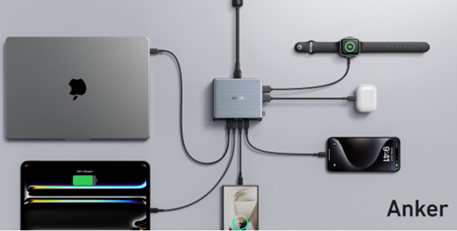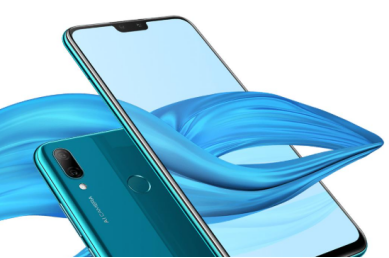The Captagon: From the Battlefields of Syria to the Streets of the Gulf States
Dubai Customs announced the seizure of a large amount of narcotic substances in an operation that is the "largest" in terms of size and quantity in the UAE.
Dubai Customs said, in a tweet on Twitter, that the "Jebel Ali Customs Center of the Maritime Customs Centers Department thwarted an attempt to smuggle about 1.5 tons of ground Captagon, with an estimated value of 1.4 billion dirhams (about 381 million dollars)."
The Magic Pill
"It makes you feel happy, euphoric and strong, so you will not be overcome by sleep or hunger will disturb your thoughts", this is how Ahmed, who is a pseudonym, described to me his journey with Captagon addiction five years ago.
"It all started when I was 21 years old, a friend of mine invited me to try this magic pill," he says.
Ahmed was in his first year of study at Yarmouk University in Jordan at the time, and all the doors were closed in his face. No job, no money, no future in sight.
Skip topics that may interest you and continue reading. Topics that may interest youtopics that may interest you. End
A few weeks after that call, something happened that Ahmed hadn't thought of. He became addicted to Captagon, and became unable to pass a single day without these pills. He adds, "Captagon creates a different atmosphere in the brain, and at this time I needed this atmosphere in order to get rid of the pressures of life that I am going through, in order to forget the confusion and disappointment I am in, and I became ready to do anything to get one pill of it."
During that period, Ahmed relied on his friend, who taught him drug use, to secure the pills he needed, before he got used to securing them on his own and communicating with those who traded in them.
Skip the podcast and read onMorahakatyTeenage taboos, hosted by Karima Kawah and edited by Mais Baqi.
The episodes
The end of the podcast
He told BBC Arabic: "I knew of my friends who sold Captagon in the area around my house, and I used to communicate with them by phone. We had a password to refer to these pills, which is the blue bird. Once we mentioned it, we agreed on the place and the price, and we met on the street."
Ahmed used to spend 15 to 25 dollars a week on Captagon pills, before he decided to stop taking them after five years of addiction last March.
Ahmed stopped taking Captagon after an accident that changed his life. "I went out for a walk in the car with my friend, who suggested that I take Captagon for the first time, and we were both under the influence of the drug. We had a terrible car accident, as a result of which I remained unconscious for 3 days, but unfortunately my friend passed away."
It was a defining moment, after which I felt that God had given me a second chance to live a different life after I was threatening my family to get money to buy drugs. Fate gave me time to fix everything.” At that time, Ahmed asked the treating doctor in the hospital not to inform his family about his blood tests, and vowed from that moment not to return to addiction.
What is Captagon?
The drug to which Ahmed is addicted, and hundreds of thousands like him in the Arab region, is a counterfeit pill similar in composition to a drug that appeared in the sixties.
Captagon is its trade name, and Phenethylline is the scientific name.
The combination of the drug activates the nervous system, and it consists of an enhanced substance, "amphetamine", to produce psychological effects that are stronger and much faster than amphetamine alone, and it gives a feeling of vitality, activity and happiness, in addition to it there is the substance "theophylline", which is similar in its effect to the effect of caffeine. It acts as a brain tonic.
It began to be manufactured as a drug in Germany in 1962, to treat hyperactivity, distraction, and narcolepsy, "which is excessive and pathological sleep."
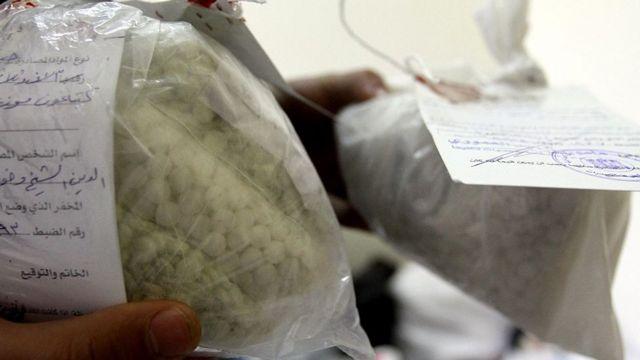
However, the World Health Organization banned its production and circulation in 1986 after it was proven that it leads to addiction.
According to frequent Arab and foreign press reports, the production of Captagon as a drug has increased in the Middle East during the recent years of the conflict in Syria.
The American New York Times and the British magazine The Economist published reports accusing parties close to the Syrian government of producing and marketing Captagon, which could not be verified.
I asked the doctor, Mr. Taha Al-Derazi, a consultant neurosurgeon in Bahrain about the effect of these pills, and he said, "In the beginning, these pills help stimulate the nervous system, which increases alertness, concentration and physical performance, improves mood, a sense of energy and no need to eat Or sleep, as it strengthens sexual performance.
But the negative effect of taking this type of drug far outweighs this initial and temporary effect on the body. Over time, this effect decreases, and the person is forced to use a larger amount of the drug, and addiction symptoms begin.
According to Al-Darazi: "Take these pills for a long time leads to addiction and hallucinations, and lack of sleep causes headaches and lack of focus and may lead to a nervous breakdown, and the condition may develop into depression, and sometimes it may reach thoughts of suicide."
These pills also cause heart disease, circulatory disorders, psychosis and insomnia.
These grains are called by several colloquial names, including Abu Hilalin - in relation to the Latin letter "C" drawn on the disc.
Sometimes it is called “German” in reference to the country of origin of the original drug, “white” in relation to its color, and “ghost” in relation to its effect.
“Who pays the price?”
Truck drivers who travel long distances and want to stay awake for long hours prefer Captagon; And people who want to lose weight because it helps to lose appetite; Students who wish to obtain additional study hours; And some athletes who train for long hours, and some who practice violent actions that require high effort.
More recently, militants on the battle fronts in Syria and other Arab countries have joined this list. It reduces pain and increases physical abilities during the first days of use.
According to the United Nations, more than 95 million Captagon tablets were seized in Saudi Arabia in 2017. Saudi Arabia announces about six seizures per month of Captagon pills smuggled into the country in tea packages or hidden in clothes.
In May 2021, the Saudi authorities said that they had discovered more than five million seeds hidden in pomegranate shipments coming from Beirut, and Riyadh banned the import of agricultural products from Lebanon.
In the same year, more than a quarter of a billion pills were seized globally, more than 18 times the amount seized just four years ago, with a market value of one billion dollars - which indicates a growing demand for it and its production as well.
Despite the increasing efforts to seize these narcotic pills, what is being smuggled to the Gulf markets is very large, which is confirmed by the size of the announced seizures. According to the British newspaper "The Guardian", over the past two years, smuggling operations of this drug in the Middle East and Europe, estimated at no less than 15 shipments, have been thwarted.
Observers note that the consumption of Captagon is increasing in countries that ban the sale of alcohol and traditional drugs, led by the Arab countries in the Gulf, along with Iran.
Dr. Al-Derazi says that the manufacturers of these grains mainly target the "wealthy" Gulf countries, as they have the financial ability to buy these grains, unlike other countries.
The Captagon is smuggled to the Gulf countries through several points, including Jordan, Egypt, Lebanon, and the port of Latakia in Syria. In recent years, Jordan has transformed from just a transit point for these narcotic pills, to a major center for their spread, according to what the Anti-Narcotics Department in Amman told us.
According to the department's statements to the BBC, the cheap price of these pills (ranging between $2 and $3 per pill) is the main reason behind their spread among the poorest groups.
The number of Captagon pills seized in Jordan increased this year, nearly double the amount seized in 2020; About a fifth of the quantities of Captagon that were supposed to pass to Saudi Arabia are now consumed in Jordan. As the supply increased, the price fell, and the drug found its way to schoolchildren.
This was confirmed by Ahmed from Jordan, as from his experience, young people and students in particular are the most inclined to take Captagon.
“From Syria to Saudi Arabia?”
According to journalistic investigations based on official testimonies and documents, they are smuggled overland to Jordan and Lebanon, and from there to the sea and air ports of Beirut, while the largest percentage exits from Syria itself through a port Latakia overlooking the Mediterranean.
After that, shipments of Captagon are distributed to several countries, including Turkey, Lebanon, Jordan, Greece, Italy and France, and as far away as Germany, Romania and Malaysia. Most of these countries are not important markets for real estate, but they are just stations on its way to the Gulf, especially Saudi Arabia.
The Center for Analysis and Operational Research, which focuses on the situation in Syria and is a center affiliated with civil society, issued a report in May 2021 on the volume of Captagon exports from Syria. According to the report: "The value of Syria's market exports of Captagon in 2020 amounted to no less than $3.46 billion."

